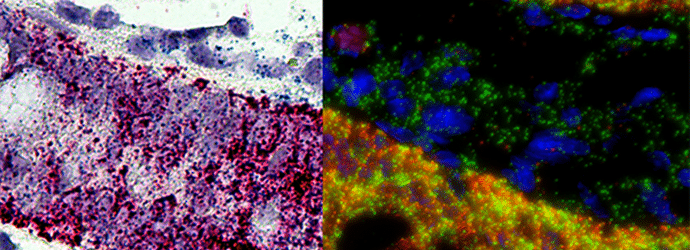While they may not be as in demand as when they were the basis of sequencing projects, bacterial artificial chromosomes (BACs) are still used for a wide variety of projects. Based off of the F origin of replication, BAC vectors can stably maintain up to 300 kb of sequence in a single plasmid, lending themselves useful to a variety of research.
However, while they may seem like any other plasmid, working with BACs are not a simple task. BACs are maintained as a single copy in each bacterial cell, greatly reducing yields, and the large DNA sequences are extremely fragile.
The following are a few of the best tips that I have learned in my time working with these plasmids.
Scale-Up
Unlike standard plasmids that may replicate to hundreds of copies per cell, BACs are maintained as a single copy within each bacterial cell. As a result, a 5 ml culture will generally not yield the micrograms of DNA that you may be used to. You will need to scale up to 50 ml, 100 ml, or even a 1 L culture depending on your application and plasmid stability.
Enjoying this article? Get hard-won lab wisdom like this delivered to your inbox 3x a week.

Join over 65,000 fellow researchers saving time, reducing stress, and seeing their experiments succeed. Unsubscribe anytime.
Next issue goes out tomorrow; don’t miss it.
Additionally, you may need to adjust the amount of DNA you add to reactions. For instance, if you are attempting to excise a 5 kb fragment from a 10 kb plasmid, a 1 µg digest would yield 500 ng of DNA for future use. However, if you are attempting to excise a 5 kb fragment from a 250 kb BAC, a 1 µg digest will only yield 20 ng of DNA for future use. As a result, you would need to digest 25 µg of the 250 kb BAC to get the same yield!
Forget the spin columns
Spin columns have become the standard in many labs for the purification of DNA, but most columns are only capable of processing DNA fragments up to 15 kb. Since BACs are far above that limit, you will need to try methods such as ethanol precipitation for purification. In addition to DNA purification, many plasmid and gel extraction kits are based on spin columns as well, so make sure to research size limits on any kits beforehand.
Handle with care
Step away from that vortex! Large DNA fragments are fragile, and unless in supercoiled form, must be handled carefully. Something as simple as a 10 second vortex can fragment the DNA that you have spent so much time purifying. So, unless you are certain that the DNA is completely in its supercoiled form, avoid vortexing and repeated freeze-thaw cycles. In fact, unless I am not using a BAC for an extended period of time, I store my samples at 4°C to prevent degradation.
Consider extracting with a kit
If you normally perform an alkaline-lysis based plasmid extraction, there are options for BACs, however there is an increased risk of causing the DNA to shear. Additionally, at least in my experience, there is usually a higher amount of genomic background contamination as well. As a result, the option usually suggested for purification of BACs without a kit is through a cesium chloride gradient, but who wants to mess with that?
The easier option, in my opinion, is to bite the bullet and use a BAC-specific purification kit. There are multiple companies that offer these kits, and for the most part they rely on large gravity-based columns. While these kits can be expensive, they are faster than most manual methods, and the results are usually extremely pure, intact DNA.
Working with BACs can be a daunting task, but is not an impossible one. As long as you remember to pay attention to the scale of your plasmid, and the size limit of any kits you use, you will soon master working with these impressively large
You made it to the end—nice work! If you’re the kind of scientist who likes figuring things out without wasting half a day on trial and error, you’ll love our newsletter. Get 3 quick reads a week, packed with hard-won lab wisdom. Join FREE here.








